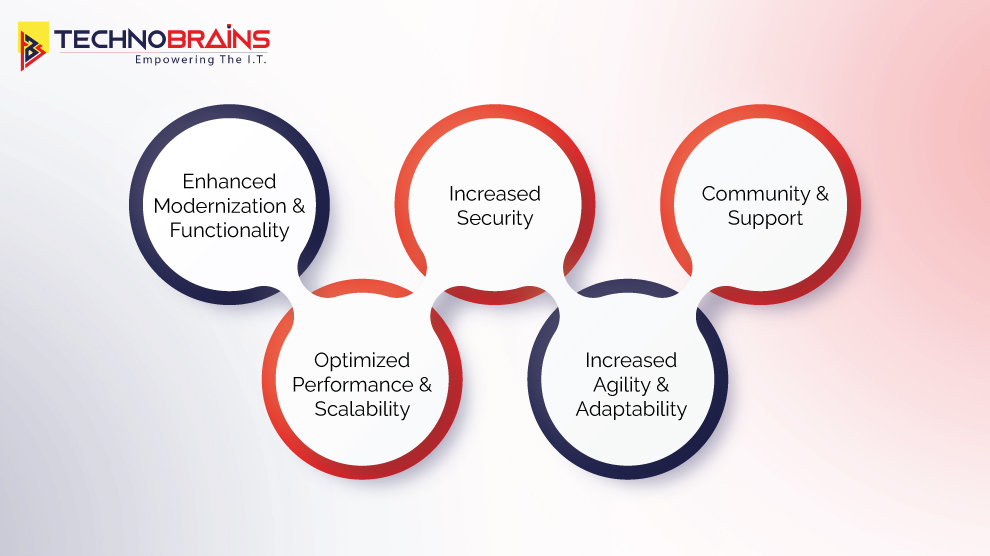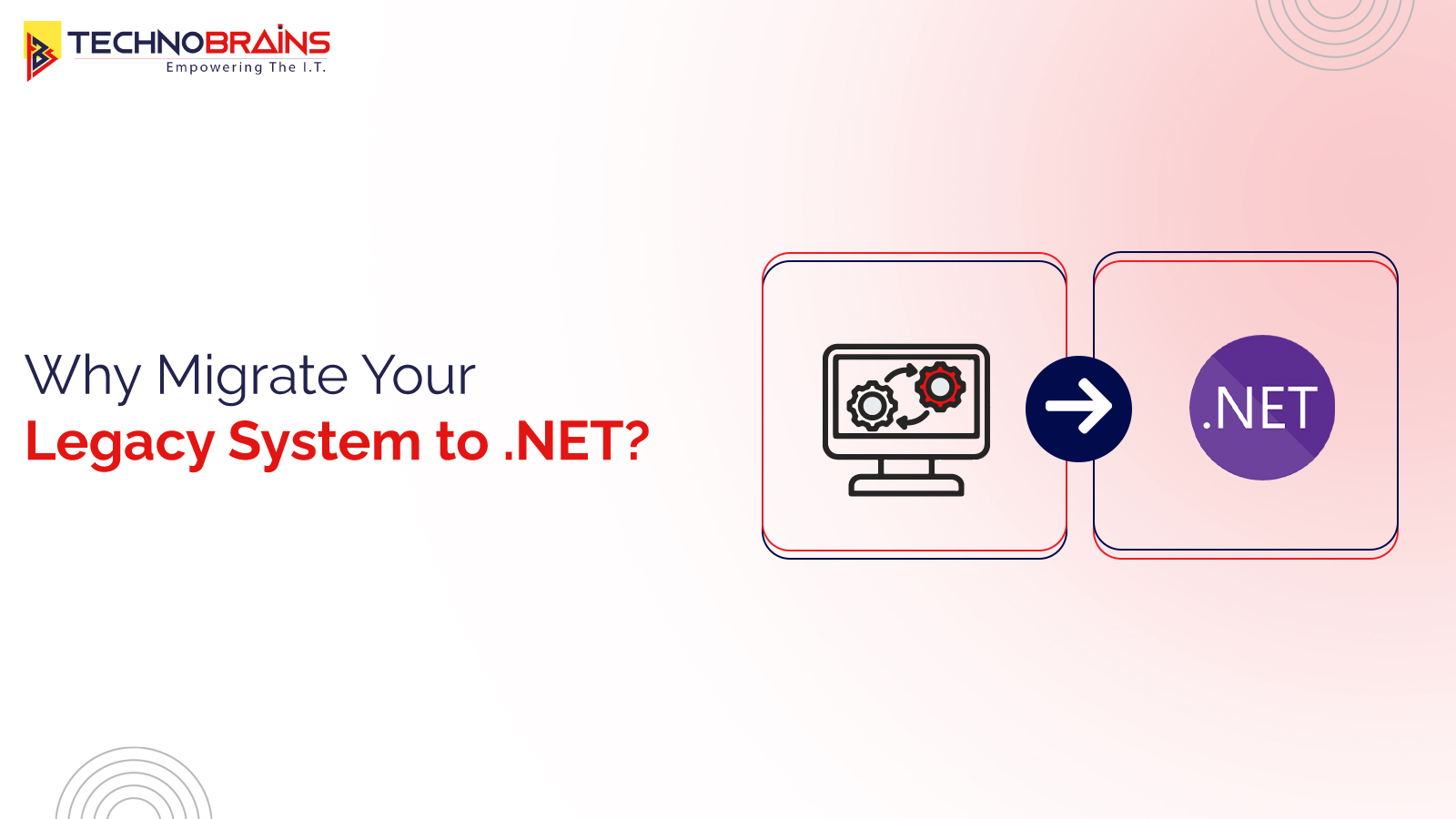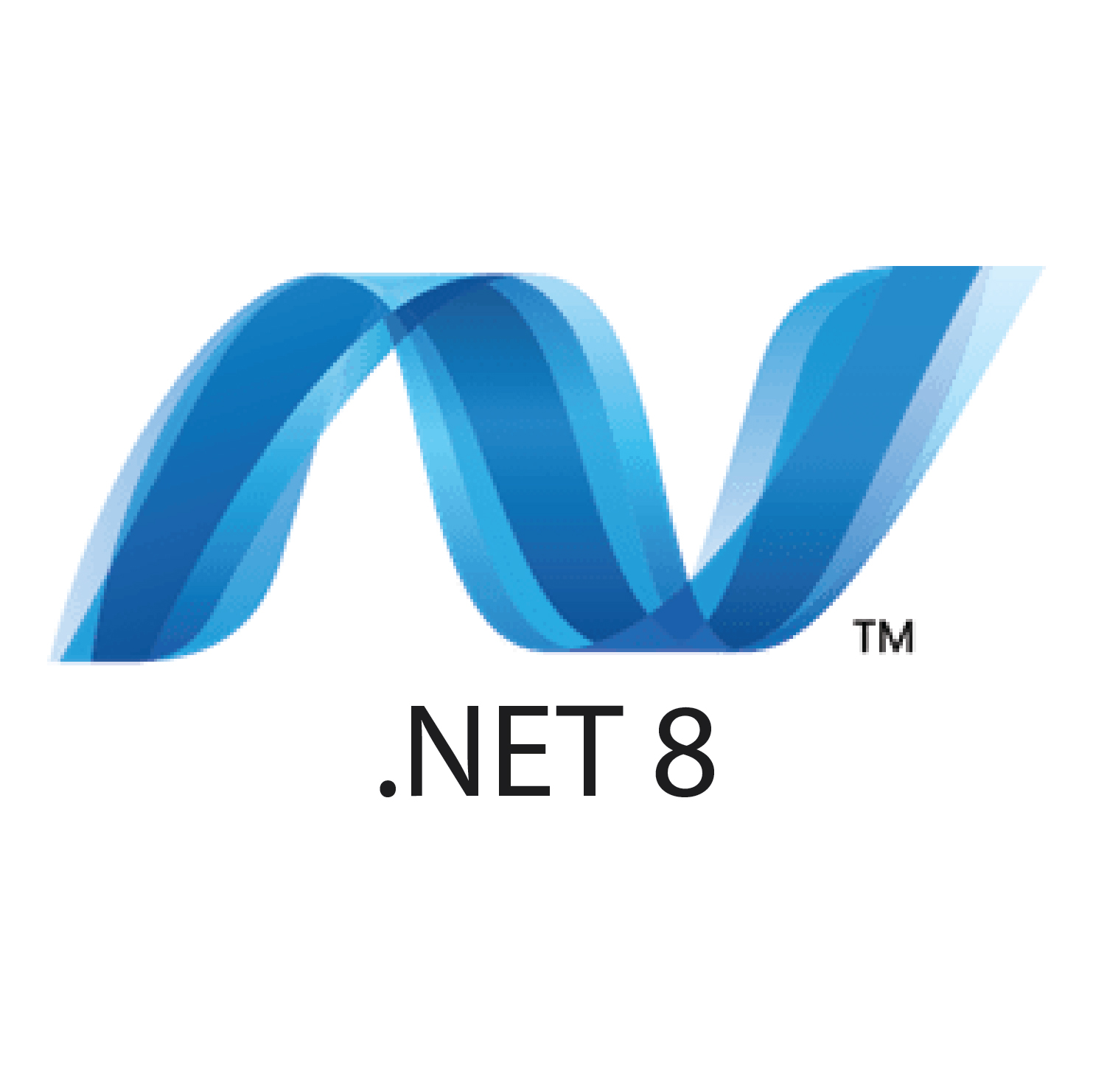The business landscape is changing and is becoming more and more dynamic. Disruptive thinking and a willingness to take calculated risks are essential for any business to grow and stay one step ahead of the competition. As a matter of fact, that very prerequisite is necessary to succeed in today’s modern business environment. However, when the decision comes to migrating heritage IT systems and infrastructure, this may cause businesses to not be as eager to embrace risks and disruption.
Enter .NET, a powerful and versatile framework developed by Microsoft. The mere concept of migrating a legacy system and reengineering it to accommodate changing demands is daunting; it involves navigating an intricate landscape of complexities that, when not managed properly, can have severe repercussions. .NET, however, offers businesses a robust platform that can streamline the migration process and mitigate many of the risks usually associated with legacy system modernization.
But why would you need legacy system modernization in the first place? And why should you consider legacy system migration to the .NET framework? Find out the answer to these questions through our in-depth blog.
Why Do You Need Legacy System Modernization?
Although surprising but true, businesses still rely on legacy systems for several reasons. These systems play a crucial role in powering up the business’s critical operational processes, seeing that they have been custom-built for a reason. As a result, they might feel modernization isn’t worth the effort should the system stop functioning well or collapse. Having said that, while the systems still chug along, for a business to adapt and thrive in today’s modern, digital world, heritage systems and infrastructures do not suffice.
The contemporary environment demands innovation and transformation, and taking the first step towards modernization is essentially a strategic choice to place one’s business ahead of the curve and take advantage of new growth opportunities. Here’s a look at a few reasons why your systems need modernization:
- As legacy systems age, the cost of maintaining and keeping them on life support tends to rise.
- These well-aged systems do not boast reinforced security measures or features necessary to resist modern-day cyber threats, increasing the risks of data breaches and other security incidents.
- Over time, legacy systems become archaic and may not support new business requirements or technologies, making the organization unable to adapt to the digital evolution.
- Legacy systems date back many years through the use of now-old-fashioned or outdated technology. As a result, finding individuals skilled in the relevant technologies or programming languages becomes quite a difficult task.
- Integrating legacy architectures into newer technologies can be challenging and demands a lot of effort, hindering the firm’s capability to implement advanced solutions to increase efficiency.
Read also, .NET 6 vs .NET 8: What You Need to Know
Why Migrate Your Legacy System to .NET?

The task of migrating legacy systems to any framework is intimidating, especially due to fear of failure or system collapse. However, the significant advantages one’s business gets from the initiative far outweigh the challenges and difficulties endured. But why is Microsoft’s flagship .NET framework well-suited for this purpose? Take a look at the reasons given below why you should migrate your legacy system to .NET:
1. Enhanced Modernization & Functionality
This versatile framework provides access to novel development tools and libraries, especially with the release of .NET 8, with new features and enhancements to the already-comprehensive ecosystem. Choosing .NET means you can update your systems and applications with the latest features, enhance their interface, and facilitate easy compatibility with newer technologies.
2. Optimized Performance & Scalability
Among Microsoft’s consistent aims has been its dedication to enhancing the performance of .NET with each release. Thanks to its optimized runtime environments and advanced memory management capabilities, it can significantly improve the performance of your systems. .NET is also well-known for its easy scalability, allowing you to seamlessly scale your legacy systems to accommodate increased user loads or voluminous data volumes.
3. Increased Security
Security is a critical concern. And as we’ve touched upon before, legacy systems can be more susceptible and vulnerable to attacks from evolving cyber threats. What .NET offers are built-in security features and vulnerability patching capabilities to ensure your systems are shielded from potential threats and hazards.
4. Increased Agility & Adaptability
When developing legacy software, the features and functions that are added are one-time events. Afterward, attempting to expand upon their functionality, improving them, or simply maintaining them may prove difficult and costly in terms of time and resources. With .NET’s modular architecture and component-based approach, it becomes much easier to add, remove, or update features in your legacy systems, allowing them to adapt to changing demands and requisites.
5. Community & Support
The .NET framework boasts an active and vibrant developer community, offering access to comprehensive resources, documents, online forums, and a pool of experienced developers to provide support and guidance throughout. Microsoft also consistently dedicates itself to providing support for the framework through regular updates and fixes. All of this ensures your legacy system’s long-term stability, support, and access to specific expertise on an as-needed basis, along with staying updated on the latest trends in .NET development—trends that may prove helpful to embrace in the long run.
Wrapping Up
While daunting, the modernization of antiquated legacy systems is a decision that businesses must make in order to keep up with the rapidly evolving corporate environment. Migrating these systems to the .NET framework can prove to be highly advantageous for several reasons, positioning one’s business at the forefront of innovation. Making this decision goes beyond just a technical upgrade; it’s essentially a choice that future-proofs your IT infrastructure, ensuring it remains adaptive to the evolving demands of today.
Read also, Top Trends in .NET Development for 2023 and Beyond
How Can TechnoBrains Help?
At TechnoBrains, we realize the significance of an organization’s legacy systems and the essential role they typically play, given their widespread reputation. But worry not. If you’re contemplating migrating your legacy system to the .NET framework and need a reliable partner for a precise transition without loss of functionality or data integrity, TechnoBrains is here to assist you. Our team of adept professionals is capable of initiating a seamless migration to the .NET framework. Reach out to us today for a quick conversation and to explore how you can hire .NET developers from TechnoBrains who can help you out.









